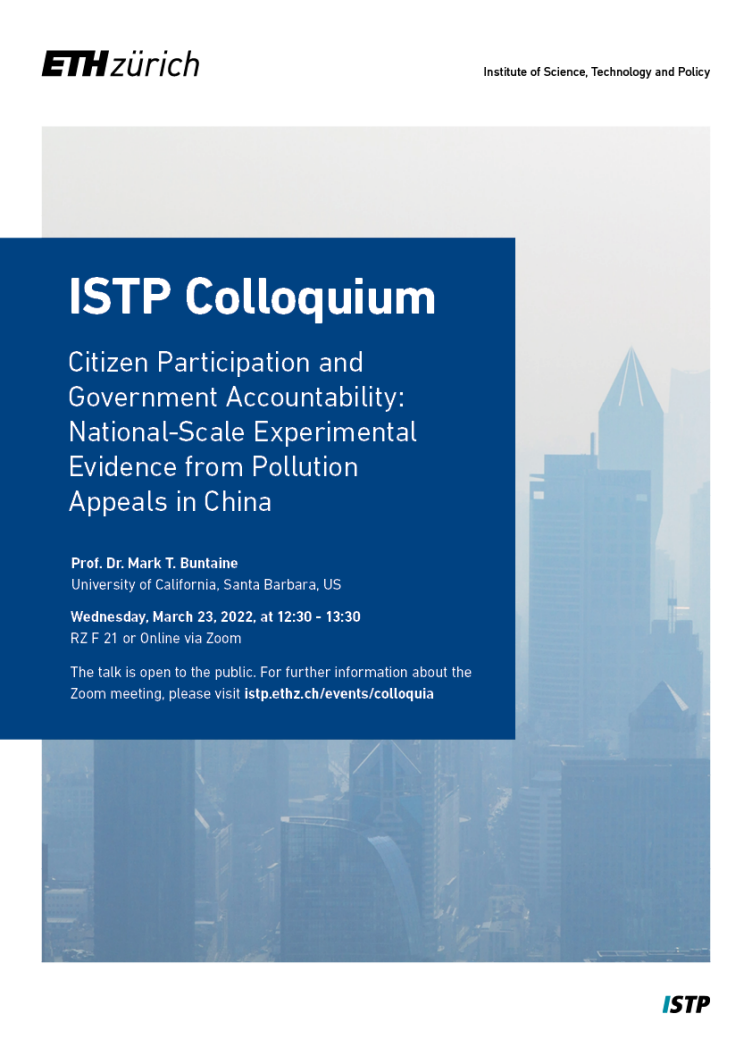Colloquium: Prof. Dr. Mark T. Buntaine
Wednesday, Mar 23, 2022, at 12.30 - 13.30
RZ F 21 or Online, Zoom | Sign up here
Citizen Participation and Government Accountability: National-Scale Experimental Evidence from Pollution Appeals in China

Countries around the world have launched public disclosure programs to stimulate citizen participation in environmental governance, yet little is known about if and when such participation affects regulation and pollution. We conducted a national-scale field experiment that randomly varied how citizen appeals about violations of pollution standards were sent to regulators or the violating firms. We find that, appealing a firm’s violations to the regulator publicly through social media increased both regulatory oversight and firm compliance, which reduced subsequent violations by 40% and air and water pollution emissions by 13% and 4%, respectively. In contrast, appealing to the regulator through private channels only caused a marginal improvement in environmental outcomes. Additionally, we randomly varied the proportion of firms subject to appeals at the prefecture-level and find that there is a positive general equilibrium impact as the control firms in high intensity prefectures reduced violations more than control firms in low-intensity prefectures. Analysis of ambient pollution data and back-of the-envelope calculations both suggest that encouraging public participation in environmental governance would lead to significant improvements in China’s aggregate environmental quality.
About Prof. Dr. Mark T. Buntaine
Mark Buntaine's research investigates the sources of effective environmental policy in developing countries, with an emphasis on the targeting and impact of foreign aid. Although many of the world's most significant environmental problems occur in developing countries, the implementation of environmental policies is often challenging because of inadequate resources and poor governance. Buntaine leads a range of international projects that deal with the allocation practices of aid donors, the participation of citizens in environmental policy-making, the relationship between public and private financing of environmental technologies, the processes that lead to effective government reform, and the evaluation of environmental projects, among other interests. Prior to arriving at the Bren School in 2013, he served on the faculty in the Government Department at the College of William & Mary. He has done fieldwork in many countries across Asia, Africa, and South America.
The presentation of the talk is available for protected page download.